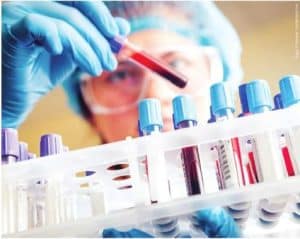
Percentage of life sciences professionals using blockchain has tripled since 2017
pharmafile | September 27, 2018 | News story | Medical Communications | blockchain, pharma, pistoia alliance, technology
A survey conducted by The Pistoia Alliance, a not-for-profit coalition of life science companies, vendors, publishers and academic groups, has shown that 60% of pharmaceutical and life sciences professionals are either using or experimenting with blockchain, in comparison to just 22% in 2017.
However the survey revealed that 40% of life sciences and pharmaceutical professionals currently have no plans to implement the blockchain. It was noted that the biggest barrier to the adoption of the technology was due to a lack of access to skilled personnel with 55% of respondents citing talent as the biggest impediment to adoption.
The second most common barrier to application of blockchain technology in the lifesciences industry, according to respondents, was the complexity of the technology, with 16% of respondents claiming that blockchain technology was too difficult to understand.
“We must ensure that the life science industry has access to the right skills and staff to bring their blockchain projects to fruition, particularly looking to the technology industry to fill the blockchain talent gap. This knowledge will be particularly useful for the 18 percent of life science professionals who admitted to knowing nothing about blockchain. The potential to enhance collaboration and, therefore, innovation is huge,” commented Dr Steve Arlington, President of The Pistoia Alliance.
“Blockchain provides an additional layer of trust for scientists and their organisations. We hope the security benefits of the technology help to lessen reticence over sharing and transferring data or information, and will facilitate further cross-industry collaboration and knowledge sharing. We believe blockchain will open up new opportunities for the industry to begin sharing data more securely to advance drug discovery, ultimately making patients’ lives better.”
Nevertheless the survey showed that life sciences and pharmaceutical professionals were becoming increasingly aware of the capabilities of blockchain. Notably 73% of life sciences professionals cited the immutability of data as the main benefit of the blockchain, while 39% cited transparency as the best feature.
“As life science and pharmaceutical organisations are beginning to look at implementing or experimenting with blockchain, The Pistoia Alliance is working hard to inform organisations on how to implement it safely and effectively,” commented Dr Richard Shute, consultant for The Pistoia Alliance.
“We are currently focusing on educating scientists and researchers about the potential uses of blockchain technologies outside of the supply chain, particularly in R&D. At The Pistoia Alliance, we want to support our members’ initiatives in blockchain, as well as provide a secure global forum for partnerships and collaboration. I would encourage anyone in the life science industry with an interest to join our Blockchain Bootcamp in October, and Alliance members to get involved in our blockchain community, to share knowledge and best practice.”
Louis Goss
Related Content

LGC Group opens $100M Organic Chemistry Synthesis Centre of Excellence
LGC Group, a life sciences company, has opened its new Organic Chemistry Synthesis Centre of …

Johnson & Johnson announces successful results from trial for myeloma treatment
Global healthcare company, Johnson & Johnson, announced that analysis of its Darzalex (daratumumab) therapy showed …

Bend Bioscience adds commercial spray drying facility to Georgia site
Bend Bioscience has announced the addition of a commercial-scale spray dryer and a Gerteis dry …






